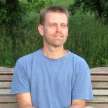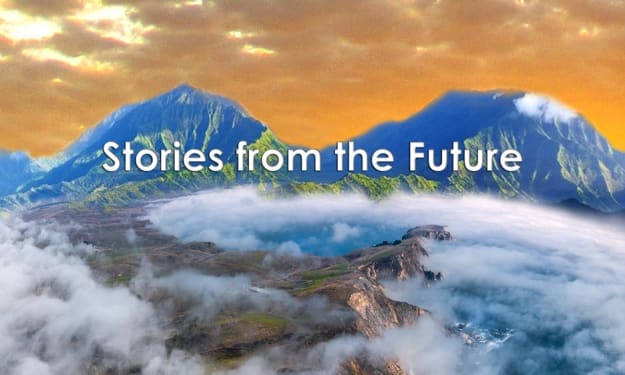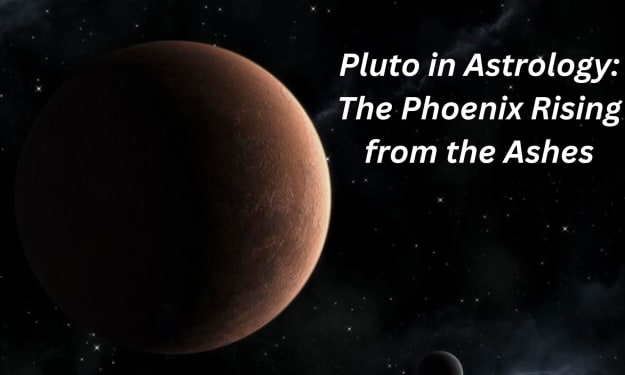The Eden Syndrome
The Global Change Movement became possible when we stopped asking how we could make a profit from it, and money became as useless as a Bronze sword in the Iron Age.

The Early Twenty-Second Century
The maglev space elevator defied gravity.
Riding the elevator, a spherical, metallic trolley had been ferrying tourists into orbit from Cape Canaveral, Florida since 2088. It held ten passengers on each of its three decks. The Armstrong Orbiter, hitching a ride on the maglev elevator, had opened the final frontier to the public.
The Orbiter was a smooth, mirror-like bean with large arched bay windows on each of its viewing decks. Visitors to the Cape could tour the NASA museum before embarking on a twelve-hour journey into geosynchronous orbit to view the sunrise from heaven.
The spine of the maglev elevator, the Space Line, was fabricated from transparent diamond nanothreading, anchored to Earth at the equator and tethered to a dozen transportation sites around the globe for both passengers and cargo. The Space Line, though a marvel, was less of an engineering feat than the Golden Gate Bridge or the Great Wall of China had been in their day.
Quinn Delterra was honored with a first-class flight on the Armstrong Orbiter. He was travelling with his wife and eight colleagues he’d worked closely with for four decades.
Seeing the Green Earth from space was said to be a jaw-dropping perspective. It was said that on the planet below, flocks of migrating birds and shoals of marine life were so sweeping in scope that they shadowed Earth’s oceans like clouds that could be seen from space. The Cambrian Effect, as it had come to be known, was the heavy re-population of Earth’s species during the environmental cleanup of the past century.
The Armstrong Orbiter was nearly half-way up its long ascent to 20,000 miles above the Earth. On the planet below, across the terminator into night, Quinn saw not only man-made light, but also phosphorescent plankton that illuminated bays and inlets, and outlined Earth’s coastlines. The plankton had evolved spontaneously, one of the great wonders of the twenty-first century. They consumed pollutants as their primary food source, much like the dozens of varieties of mycelium that had been discovered to digest plastic. Mother nature had been trying to help all along.
Quinn Delterra looked over at his wife, Quinci, a dignified woman with long, flowing, quicksilver hair.
“How’s my Tarzan?” Quinci asked him.
“Tarzan tired, Jane. It’s taken a lifetime of work. Tarzan at peace,” he said, taking her hand. Relishing every moment of their once-in-a-lifetime ascent, Quinn’s mind was finally quiet.
“Have you decided what you’re going to say in your address?” Quinci asked.
“Can I just talk about you? Can I just tell them how wonderful you are?” Quinn asked.
He did sound tired, Quinci thought. This talk was one of the crown jewels of his career. A decade ago, he would have spent months writing it. So far, he had only written a few paragraphs.
“Wake me up before we reach orbit,” her husband said. “Don’t let me miss the sunrise. I think I want to sleep a bit.”
In their comfortable first-class cabin, Quinn rested his head against Quinci’s chest, and felt powerless against sleep overcoming him. The Earth below was the most beautiful sight he’d ever seen, but he couldn’t keep his eyes open.
He felt Quinci nudge him awake some time later.
“Quinn, look, look! It’s starting.”
Quinn opened his eyes to the first rays of light peeking over the curvature of Earth.
Quinci wiped tears from her eyes, then his.
“Now I know what I’m going to say to them,” he said, as if in a dream.
“Tell me.”
He saw the sun’s reflection in Quinci’s eyes. “It’s not as beautiful as you,” he said with a smile. A feeling of euphoria spread out from his chest and warmed him all over, like hot chocolate and slippers in winter. Tingles ran down his spine, his neck, his entire body.
Quinn Delterra took a deep breath and closed his eyes.
One Month Later
United Nations Science Summit ~ 2107
Geneva, Switzerland
The speaker walked to the podium with a standing ovation.
As the applause faded, she signaled the lights to come down. The domed amphitheater, holding 5,500 delegates representing 195 countries, was illuminated by just an amber hint of recessed column and cove lighting. Behind the speaker’s podium, a transition of images and videos showing Earth from orbit waxed and waned across a three-story projection screen. The images cross-faded in silence for the first thirty seconds, allowing them to speak for themselves.
“Seen from orbit,” the speaker said, “our Earth has 620,000 kilometers of coastline. One hundred years ago, it was inconceivable that nearly half of that coastline could generate clean, renewable tidal energy. The view from orbit is breathtaking.
“Seen from orbit, our Earth has nearly nine million square kilometers of desert. A century ago, it was impossible to imagine half of it terraformed into a photovoltaic sea. The view from orbit is breathtaking.
“Globally, a half-dozen tokamak nuclear fusion reactors provide the balance of humanity’s energy needs. At this conference, we celebrate Earth’s ten-year anniversary as a Carbon Neutral Planet, a landmark accomplishment in the history of human civilization.”
An ovation filled the auditorium. The house lights came up as an audience of dignitaries and distinguished guests rose to their feet.
“We dedicate the decaversary of Carbon Neutrality to Quinn Delterra, who would no doubt be the first to tell us that the view of the Green Earth from orbit is a truly life-affirming. We dedicate this ceremony to one of the twenty-first century’s most inspiring and influential visionaries.”
Another pause for applause.
“Quinn Delterra began his career developing the artificial intelligence that would later settle the New Sahara Lunar Colony, the artificial intelligence that would help save Earth from humanity’s own short-sightedness. But Quinn Delterra was not a technologist. In fact, he lived ten years in the prime of his life with his wife, Quinci, deep in the Amazon, disconnected and off-the-grid. Quinn cared deeply about the Earth, but he was not an activist. Quinn was a deeply spiritual person, but he was not religious.
“First and foremost, he was a visionary. In his official capacity as Advisor to the U.N. Science Council, he was responsible for ‘ensuring the conscientious development and implementation of new technologies.’ Some compared him to the visionary cosmologist Carl Sagan or to the creator of Star Trek. A Gene Roddenberry for the real world, Quinn Delterra dreamed about the Earth’s future while others forecasted worst-case scenarios. It will be up to future generations to determine his legacy. I, for one, believe none of us would be here were it not for his work. Earth would not have survived the Anthropocene.
“Last month, aboard the Armstrong Orbiter, seeing the Green Earth of his vision with his own eyes, Quinn Delterra passed away peacefully in his sleep. There can be no more fitting farewell for a visionary than seeing the fulfillment of a dream with his own eyes.”
A moment of silence.
“Quinci Delterra has agreed to be here today in her husband’s place to share her metastential perspective on the Global Change Movement that defined the twenty-first century.”
A tall, eloquent woman in a long flowing canary blue dress walked onto the stage, her waist-length hair of pure silver waving behind her.
Without preamble or introduction, she simply began to read, and the words appeared on the screen behind her.
“Our finest hours dawn in times of crisis. Nothing inspires us more than rooting for the underdog. Survival against the odds is evolution at its finest. We have a flair for the dramatic, and a penchant for courting disaster. Why? Maybe because it so often takes a tragedy to bring us to our knees, to bring us to our senses. Against the odds, we survived. We cleaned up our air, our act, and our water. Welcome to the twenty-second century. We are here to affirm our faith in humanity.”
Quinci paused to let the audience digest that.
“Those were the last words my husband ever wrote, the opening of the address he was preparing to deliver today. I think that says it all,” she said. “Thank you for having me.”
Quinci took the three small steps down from the podium. A rumble of confusion swept through the audience.
She stopped in her tracks just before leaving the stage.
“But what do we tell our children when they ask us, ‘Mommy, Daddy, how did this happen?’
Silence fell on the auditorium.
“Do you want to know what I say?” Quinci asked.
The audience responded with various affirmations, nodding heads, a smattering of applause, some voices.
The screen behind Quinci changed to a detailed timeline of the twenty-first and early twenty-second centuries titled, the Global Change Movement.
“I would love to tell you. But you have to promise me something first.”
She stepped back up to the podium.
“You have to promise me to pass this story on. Do not ever let this chapter of human history be re-written. Do not let the lessons we’ve learned be forgotten. Do we have a deal?”
Some members of the audience were nodding. Addressing them like a teacher in a classroom, not a speaker from a podium, was having the intended effect.
“Let’s try again. Can you promise me?”
There was a general consensus. More words for ‘yes’ than she knew rippled like a wave across the delegation. “Ja. Oui. Si. Sim. Ja. Evet. Tak.”
“Okay. Don’t forget,” she said, shaking her index finger at the auditorium. "I hope they’re teaching this stuff in school. I hope twenty-first-century history includes how humanity avoided the Anthropocene Disaster by the skin of our teeth."
Then Quinci used a red laser pointer to draw their attention to the timeline on display behind her. The first red-letter date she pointed out was June 9, 2054.
“Would the Global Change Movement have occurred without the great stock market collapse of 2054? Maybe not. But everything became possible when we stopped asking how we could profit from it.”
Then she pointed to a date two decades earlier: August, 2025.
“Would the Global Change Movement have been possible without the creation of artificial life? Maybe.
“But would the Global Change Movement have succeeded without people like my husband and other twenty-first century visionaries? No. Not a chance. Since Ancient Greece, visionaries―who were often dismissed or executed in their own lifetimes―were the rare people who reached beyond the century they were born into to bring humanity out of its dark ages. In the Middle Ages, the Renaissance was a re-kindling of wisdom. It took until the sixteenth century for us to accept that the Sun does not revolve around the Earth. It took until twenty-first century for us to accept that life on Earth does not revolve around us.”
Congenial laughter rippled through the audience.
“Quinn Delterra dedicated the last forty years of his life to helping us see the bigger picture, a point-of-view he called Metastentialism meaning, an inclusive perspective.
"Quinn also suggested the English language should use a lower-case ‘i’ when referring to ourselves. He pointed out that English was one of the few languages that capitalized the pronoun for self in addition to the pronoun for God―so no wonder the English-speaking world suffered from a metastasis of ego, narcissism.”
The audience had a mixed reaction. “The new convention hasn’t been adopted, no doubt to the great relief of many of you. It would simply be too expensive to re-print all the books in the English-speaking world!”
Nervous laughter, the effect she was going for to keep their attention.
Her red laser pointer jumped to 2054.
"The global stock market collapse. The fundamental shift in the geopolitical power structure made the concept of economics as irrelevant as a bronze sword in the Iron Age. By that time, the essential material needs of people were being met by Entropic Energy Conversion. Food, water, shelter, all condensed by the Entropic Beam technology. So when the stock markets collapsed, the balance of power finally moved away from the world’s wealthy elite.”
“2054 accelerated a process that was unavoidable. The Global Stock Market collapse was the final catalyst that assured Global Change. The economic balance of power was overturned, After the economic collapse, the United Nations was finally able to pass the United Earth Charter that had been so-long opposed by the United States, among a few other powerful nations. Global Change finally came."
Quinci looked up from her notes and went silent. Her gaze scanned all of the assembled guests, the floor, the mezzanine, the balcony, the upper balconies. The domed amphitheater was red-carpeted throughout its hallways, and the recessed column and cove lighting made the domed interior glow with eloquent simplicity.
The posh surroundings suddenly humbled her. Everything civilization had achieved hit her in the gut. That perspective of utter humility at the accomplishments of mankind was carried on the coattails of the unthinkable collapse that had just barley been avoided.
Someone in the audience coughed impatiently. Then another.
“Over the past half-century, things have improved dramatically on Earth,” Quinci continued. “Once the fear and anxiety over climate destabilization was alleviated, our behavior began to improve. When scarcity of resources was no longer a core issue, we stopped looking at one another with fear, anger and suspicion.
“A Carbon Neutral Planet was the goal humanity set out to achieve before the dawn of the twenty-second century. Working together, the 195 nations of the world achieved that goal through unprecedented dedication, tenacity, and, more than anything else, cooperation. The end of the monetary economy no doubt played as big a role as the ban on fossil fuels.
“As you know, there is talk of marking this new era by adopting a Terra Novus lunar calendar. It would count 2100 A.D. as 1 N.E. As long as we don’t forget our past, I think that’s a wonderful way of turning our eyes to the future.
“Today, a new era has dawned, thanks to my husband and other twenty-first-century leaders of the United Earth. Quinn Delterra didn’t see the glass half empty, or half full. He saw the glass. He always saw the bigger picture, a philosophy we’ve come to know as Metastentialism, meaning, an inclusive perspective. He opened our eyes to what was possible. He had hope for the future. And here we are.”
The delegates rose to their feet and were slow to return to their seats.
“Let me conclude with the closing passage from Quinn’s first published work called, The Eden Syndrome. I think it’s only fitting he have the last word today."
As a species, our best hope for the future is learning to trust that intelligence. When all the individuals in a group come together, a murmuration occurs. As we begin to act and think collectively about global challenges, we open ourselves up to solutions we never considered.
The arc of human history goes back for more centuries, for more generations, than we can remember. Once upon a time, Neanderthals, Denisovans, Cro-Magnons and Homo sapiens each lived upon the Earth. Today, can we survive the Anthropocene?
In my lifetime, I want us to be able to look down on Earth from orbit and see Her coral blue seas, lush green forests, clean, clear air, and hear Her take a deep breath. The Global Change Movement has begun. Tag. You’re It.
About the Creator
Thomas Tortorich
Author, Publisher:
Listen to the "Stories from the Future" podcast
Speaker:
The Birds & Bees of Climate Change
Positive Futurism emphasizes a sustainable future and cooperative, inclusive culture ~ fiction & nonfiction






Comments
There are no comments for this story
Be the first to respond and start the conversation.